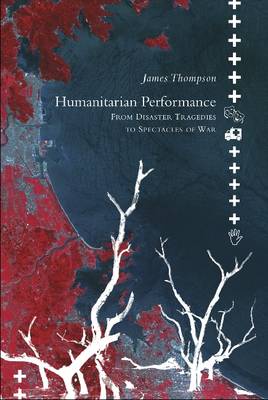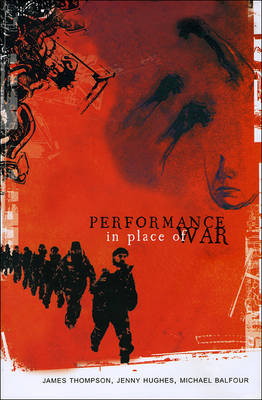SB - Enactments
2 total works
As the world is challenged by a state of constant conflict and by disasters natural and manmade, support communities endeavor through humanitarianism to overcome human suffering and help to build more peaceful and safe futures. "Humanitarian Performance" argues that the humanitarian project - from its history and rationale to its contemporary practice - can be productively explored through the critical lens of performance studies. Using the outpouring of international support for projects to benefit survivors of the Asian tsunami, the war in Kosovo, and the crisis in Darfur as case studies, this timely volume explores humanitarian attention to these narratives and the stories of tragedy and survival that emerge. With the peculiar focus and international audiences that the media brings to local tragedies, these contemporary disasters - and the humanitarianism that they elicit - become performance on the world's stage.
Performance in Place of War
by Jenny Hughes, Michael Balfour, and James Thompson
Published 12 March 2010
From the Greeks and Shakespeare to the "Ramayana" and the "Mahabharata", war has often been a major theme of dramatic performances. However, many of the most extraordinary theater projects in recent years not only have been about war but also have originated in actual conflict zones themselves. "Performance in Place of War" is concerned with these initiatives, including theater in refugee camps, war-ravaged villages, towns under curfew, and cities under occupation. It looks at theater and performances that often occur quite literally as bombs are falling, as well as during times of ceasefire and in the aftermath of hostilities. "Performance in Place of War" draws on extensive original material and includes interviews with artists, short play extracts, and photographs from the Democratic Republic of Congo, Kosovo, Israel, Lebanon, the Sudan, and others. The authors combine critical commentary, overviews of the conflicts, and firsthand accounts in order to consider such questions as: Why in times of disruption have people turned to performance? And what aesthetic, ethical, and political choices are made in these different contexts?
"Performance in Place of War" is a fascinating perspective on the role of theater in unpredictable, war-torn times.
"Performance in Place of War" is a fascinating perspective on the role of theater in unpredictable, war-torn times.

